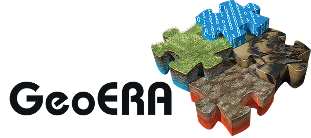Gregor Goetzl, 26 November 2020
Heat pumps in Europe: Heat pumps, used for domestic heating, were introduced in the late 1970s to the European market. After decades of slow growth rates, heat pump sales have been experiencing a strong increase in the past years at annual growth rates of above 10% p.a. Due to lower installation costs, aerothermal systems have been dominating the overall heat pump market at shares of above 80% in some European countries.
Geothermal heat pumps in Europe: Nevertheless, the geothermal heat pump systems have been gaining importance in many European countries leading to a highly dynamic market. According to the 2019 market report of the European Geothermal Energy Council (EGEC), the total number of installed geothermal heat pumps surpassed the number 2 million at a cumulated heat production of around 56 TWh in 2019.
Market characteristic: The market growth depends very much on the overall conditions given by public incentives, investor awareness and by the already existing level of diffusion. Consequently, one can differ between the following overall market conditions:
- Developed markets: Are characterized by a high level of diffusion and moderate to low annual growth rates referring to sold units
- Emerging markets: Show low to moderate diffusion rates and elevated annual growth rates
- Underdeveloped markets: Are characterized by both, low diffusion and low growth rates

Figure 1 shows the comparison between level of diffusion and market growth rate for EU countries. As indicated in figure 2, most countries follow linear growth paths if you draw the diffusion rate against the annual growth of sales until a certain saturation level is achieved. The more favorable, political and societal boundary conditions are, the higher the saturation level of diffusion will become. In Sweden, where supportive market conditions of geothermal heat pumps prevail, the current level of diffusion reached 12% of all households and might further reach up to 20% to 40%. Similar developments along the same linear pathway might be expected for Austria, Denmark, Netherlands, Czech Republic and Spain in case the boundary conditions will stay as good as they are in the moment.

In contrast, countries like Ireland, France and Slovenia face non-supportive market conditions leading to a significantly lower level of saturation way below 10% of all households.The MUSE partner countries show slightly above average market characteristics compared to the rest of the European countries listed in the EGEC 2019 market report. The median diffusion rate of MUSE countries is at 7 units per 1000 households (0.7% of all households) and the average value for the listed European countries is 4.8 units per 1000. The same applies to the median annual growth rate (sales 2019 versus stocks 2018) at +6.7% for MUSE countries compared to +6.3% for all European countries listed. Inside the MUSE countries and Europe, Sweden represents the leading nation regarding diffusion at an almost incredible level of 119.3 units per 1000 households. It is followed by Austria (27.3), Denmark (27.1) and Slovenia (13.4). On the other side of the scale, Spain (0.1 units per 1000 households) shows the lowest level of diffusion, followed by the UK (1.0), Poland (3.9) and Czech Republic (4.8). In contrast, all mentioned countries show over averaging annual growth rates, especially Spain (+20%), UK (+10.4%) and Poland (+10%).
Other MUSE Posts:
- MUSE and the underground urban heat island effect
- MUSE – Open-loop systems requirements & advantages
- MUSE – Web-based information systems for shallow geothermal energy
- MUSE – Closed-loop systems requirements & advantages
- MUSE results published in Energy Policy
- MUSE – Differences between deep and shallow geothermal energy
- Legal framework, procedures and policies of shallow geothermal energy use in the EU and MUSE partner countries
- BBC article about MUSE activities in Cardiff
- Pilot area activities – #14 Assessment of shallow geothermal energy resources in Warsaw agglomeration, Poland
- Pilot area activities – #13 Geophysical survey and groundwater monitoring in Brussels, Belgium
- MUSE at “EGU2020: Sharing Geoscience Online” – Free online geoscience conference
- Pilot area activities – #12 Thermal groundwater use in the urbanized area of Zagreb, Croatia
